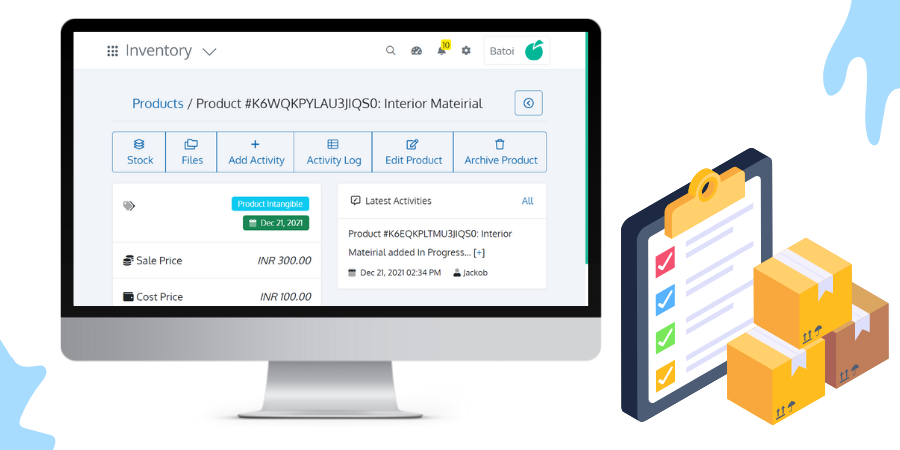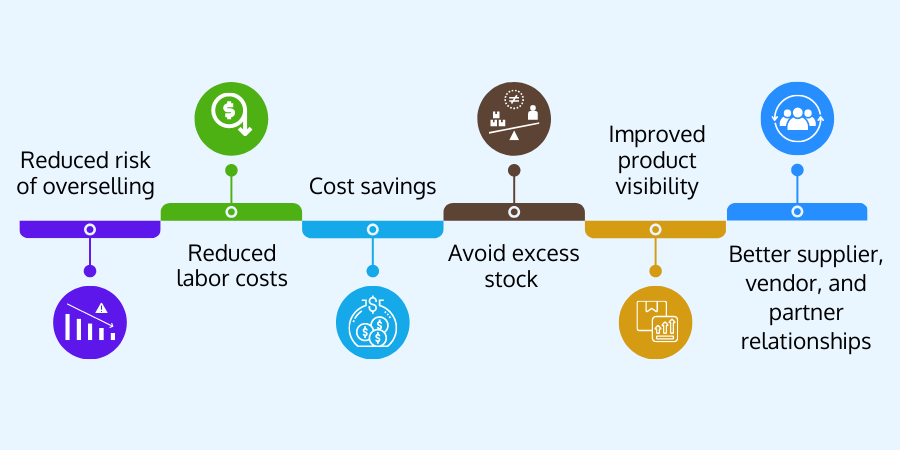
There are so many moving parts to modern businesses, but inventory is one of the most critical. Inventory management keeps companies running smoothly by preventing stockouts, ensuring accurate record-keeping, and empowering you to make smarter business decisions. With this in mind, in this quick guide, we'll tell you everything you need to know about inventory management systems and their benefits for modern businesses. So let's get into it.
What Exactly Is Inventory Management?
In simple words, inventory management is about tracking the entire flow of foods, from purchasing right through to sales, to ensure you always have the right quantities of items in the right place.
To understand this further, let's back up a little and look at the definition of inventory. Inventory is all the goods and materials a business handles with the intention of selling. So, it could be the raw materials that you use to make new products. It could be a larger product that you break down into smaller products to sell, or it could be intangible products like software.
We can also categorize inventory in different ways. For example, you might want to track your raw materials, unfinished goods (products still in the manufacturing process), finished goods (those ready to sell), and safety stock (additional inventory you keep around to cope with supplier shortages).
You might also have maintenance, repair, and operating (MRO) inventory that you want to track because although you don't sell these products directly, they are critical to the operation of your business. MRO goods are typically consumable materials needed for business operation but not incorporated into the finished product. Examples include things like machine oil, valves, spare machinery parts, safety equipment, office supplies like computers or printers, and lab supplies like beakers or scales.
Inventory management, then, is how you track these items from purchase to sale to ensure that you know how much stock to order at what time. It should come as no surprise that companies only want to have the "right" amount of stock in their inventory. Too much stock ties up cash and reduces cash flow, but too little stock causes customer order delays. And when it comes to MRO goods, companies need to ensure they have enough of them to allow the manufacturing or operational process to run without disruption.
Why is Inventory Management Important ?
Inventory is often a company's most critical asset. A poorly managed inventory can create unhappy customers. And on the business side, it creates additional problems. For example, keeping an unnecessarily large inventory costs money for storage and insurance and increases your risk of spoilage, damage, or theft. This is where inventory management systems come in. Essentially inventory management systems help you find the balance between too much and too little stock.
How Do Inventory Management Systems Work?
Inventory management systems combine processes with technology to oversee the entire inventory lifecycle. They typically include inventory management software that acts as a centralized database for all inventory, allowing you to analyze inventory data, generate reports, and forecast future demand. They could also include hardware tools like barcode scanners and policies for how to label and document goods passing through the inventory process.
However, typically when people refer to inventory management systems, they're talking about software rather than the whole process.

Benefits of Inventory Management Systems
So, what are the most significant benefits of using inventory management software? Let's take a look.
- Reduced Risk of Overselling - By using software to synchronize your orders with your inventory, you can ensure that stock levels are adjusted each time you sell a product. This guarantees that your customers won't be disappointed because they purchase an item you can't actually deliver.
- Avoid Excess Stock - Excess stock takes up valuable space in your warehouses and can incur unnecessary charges.
- Reduced Labor Costs - Inventory software vastly reduces the amount of human labor involved in tracking goods through the sales lifecycle.
- Cost Savings - Beyond labor costs, companies can reduce costs in other areas. By streamlining your inventory management process, you can reduce excess stock, shorten your supplier lead time, eliminate costly errors with automation, and more.
- Improved Product Visibility - Having a transparent and comprehensive view of your goods can be vital in the event of a recall. Unfortunately, sometimes things go wrong, and recalls are inevitable. If this happens in your business, you'll be thankful that tracking down specific batches of products is straightforward with inventory management software.
- Better Supplier, Vendor, and Partner Relationships - Inventory software provides insights about which products sell and in what volume. You can use that knowledge as leverage to negotiate better prices and terms with suppliers.



























 Batoi Corporate Office
Batoi Corporate Office